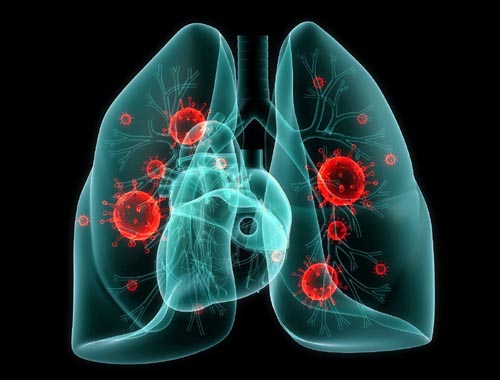Pneumonia
Pneumonia is an inflammation of the lungs caused by infection. Bacteria, viruses, fungi or parasites can cause pneumonia. Pneumonia is a particular concern if you're older than 65 or have a chronic illness or weak immune system. It can also occur in young, healthy people. Pneumonia can range in seriousness from mild to life-threatening. Pneumonia often is a complication of another condition, such as the flu. Antibiotics can treat most common forms of bacterial pneumonias, but antibiotic-resistant strains are a growing problem. The best approach is to try to prevent infection. Pneumonia often mimics the flu, beginning with a cough and a fever, so you may not realize you have a more serious condition. Symptoms can vary depending on your age and general health. The signs and symptoms of pneumonia may include: Fever; Lower-than-normal body temperature in older people; Cough; Shortness of breath; Sweating; Shaking chills; Chest pain that fluctuates with breathing (pleurisy); Headache; Muscle pain; Fatigue. Pneumonia has many possible causes, but the most common ones are bacteria and viruses normally encountered in the environment. Usually your body keeps these microbes from invading your lungs. Sometimes, though, a robust germ can breach your defenses, regardless of your general health. The germs that cause pneumonia in otherwise healthy people are not usually the same ones that cause pneumonia in hospitals and other health care settings. Similarly, the germs that can infect your lungs if you inhale foreign substances (inhalation or aspiration pneumonia) differ from those that cause more-common types of pneumonia. The same is true of the germs that cause pneumonia in people with weak immune responses.
